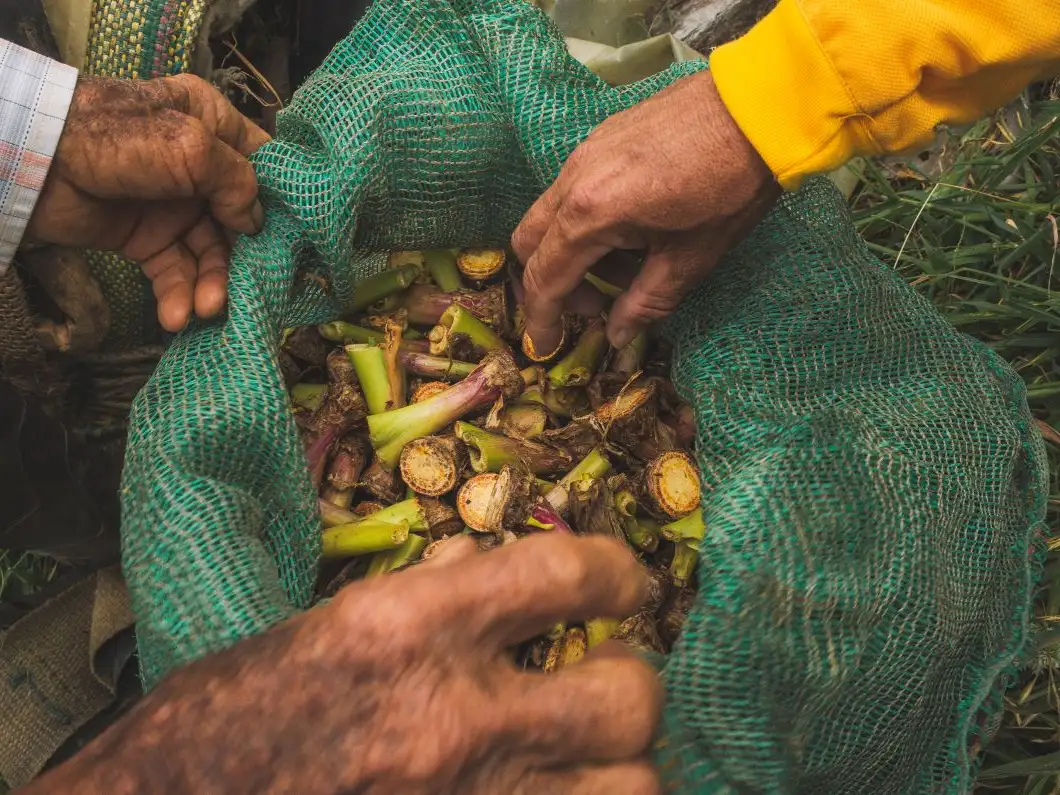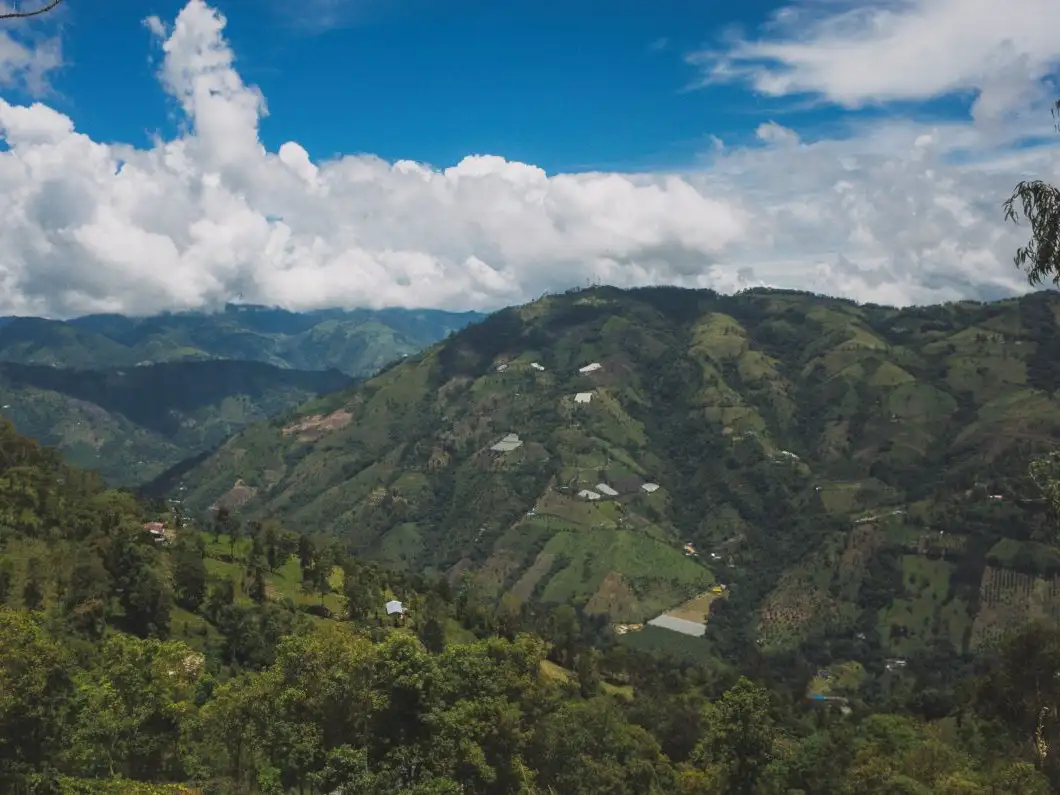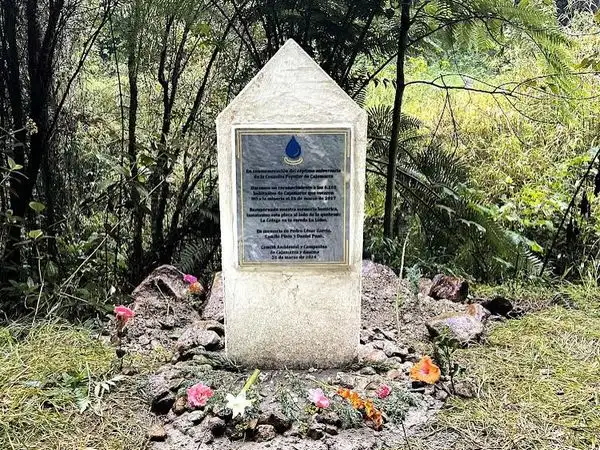CAFOD's work in Colombia
CAFOD’s work in Colombia focuses on peacebuilding, human rights, care for our Common Home and gender-based violence.


Farmers with crops of parsnip (arracacha). Photo: Centro Siembra
Cajamarca is a natural paradise in the heart of Colombia, surrounded by the tall green mountains of the Andes. It is a beautiful and extremely sensitive ecological area. It is also historical agricultural land - vital for water and food production - its crops are transported and sold to other cities and territories across the South American nation.
In March 2017, an overwhelming 98 per cent of the population of Cajamarca, Colombia, voted in La Consulta Popular to protect their water sources and livelihoods by rejecting mining in the area.
La Consulta Popular is a legally binding popular consultation. Standing together, the community of Cajamarca stopped plans for what could have been Latin America’s largest open-pit gold mine (La Colosa), proposed by one of the largest mining companies in the world – AngloGold Ashanti.
The vote’s mandate has a strong constitutional and human rights basis, both nationally and internationally, yet Colombian authorities and the mining corporation are still disputing the validity of the results.


Mountains of Cajamarca. Photo: Centro Siembra
Shortly after Cajamarca voted against the mining project, the Colombian Mining and Energy Ministry publicly rejected the result. In 2018, following industry pressures, the Colombian Constitutional Court reversed its original position: it ruled against the legally binding consultations in the context of “extractive activity”.
The Court ordered that future popular consultations could not intervene in decisions about the extraction of subsoil resources. However, the Constitutional Court did not refer to Cajamarca as decisions by the Court cannot be applied retrospectively.
In the last year, two municipal courts ruled that the results of the consultation remain legally binding and need to be complied with. These two decisions, in less than six months, are an endorsement of environmental democracy.
For COSAJUCA (Colectivo Socio Ambiental Juvenil de Cajamarca), the court’s decisions “guarantee that the [2017] popular mandate is legal and valid […] and becomes a clear call for national institutions to implement its results, taking the necessary decisions on environmental permits and mining concessions”.
COSAJUCA is a local organisation that advocates for environmental justice and human rights in the region of Tolima. They campaign to protect water, the paramos – a precious and unique wetland habitat – and their land rights. The are accompanied by CAFOD’s partner SIEMBRA, an NGO that works for the defence of environmental and human rights in Colombia.
Sara Moreno, SIEMBRA’s lawyer, explains that even though the Consulta Popular was a democratic victory, they need to keep fighting to defend the results of the consultation and its implementation.
Sara told us: “The overall balance is that after seven years of the Consulta Popular in Cajamarca, the legally binding consultation is still an example of citizens mobilising to stop a mining project, but it is still a struggle that did not end with the consultation.”
“The overall balance is that after seven years of the Consulta Popular in Cajamarca, the legally binding consultation is still an example of citizens mobilising to stop a mining project, but it is still a struggle that did not end with the consultation”
For the past seven years, whilst leading advocacy campaigns to raise awareness of their cause, SIEMBRA has worked alongside the Cajamarca community to fight against further proposed mining activities.


Commemorative plaque of a 7-year struggle to defend Cajamarca from mining. Photo: COSAJUCA
In addition to the legal battles, Sara highlights the need to keep the spirit of resistance alive within the community.
In 2023 SIEMBRA’s advocacy strategies had a national and international focus. In 2024 the planned activities also include local initiatives: setting plaques in streams to remind the community of the importance of the key water sources they are defending from the mining project; organising peaceful protests; developing internal campaigns; training the community to fight for the recognition of their rights.
The case of the popular consultation in Cajamarca is an emblematic case of participatory democracy. La Consulta Popular is a positive example for other countries in terms of protecting the rights of communities from corporate interests and protecting Our Common Home.
CAFOD, and other Catholic social justice organisations from Europe and North America, submitted in July an Amicus Curiae (an impartial advisor to a court of law, offering information, expertise, or insight that has a bearing on the issues of the case) to a Municipal Court in Colombia to reiterate the importance of adopting the results of the legally binding popular consultation (La Consulta Popular) held by the community in Cajamarca, Colombia, in 2017.
CAFOD’s work in Colombia focuses on peacebuilding, human rights, care for our Common Home and gender-based violence.